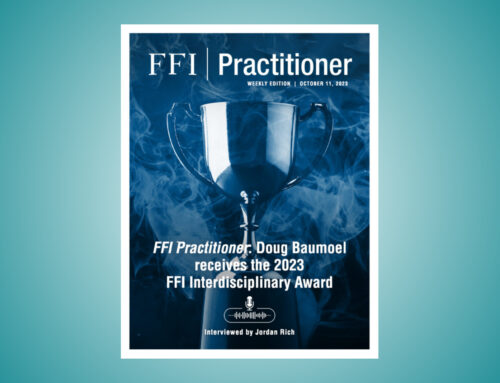Wealth Disparity and Marriage: 3 Reasons Prenups Set Couples Up for Success
Why a prenuptial agreement can strengthen a marriage and how advisors can effectively approach the discussion with clients in a positive way
By Blair Trippe
Estimated read time: 5 mins
Planning a wedding and getting married is an exciting milestone in life—one that, for many, was abruptly put on hold due to the COVID-19 pandemic. With vaccinations on the rise, more and more couples are getting back to planning their nuptial celebrations. While that includes fun decisions like choosing a cake and picking color schemes, it also may include serious discussions about money. For couples who come from different levels of wealth, this means discussing their respective wealth, and their prior ‘relationship’ with money, and the need for a prenuptial agreement.
Understandably, when one hears the word “prenup,” their first instinct may be that it’s preparing their marriage for failure or that it’s designed to benefit one partner over the other. However, prenuptial agreements don’t necessarily imply the failure of the marriage; on the contrary, they can actually strengthen a marriage. Disagreements over money can challenge even the strongest relationships, and while wealth disparity itself does not cause conflict, a couple’s misalignment on how they will spend (or not spend) their money can cause much animosity.
It’s important for couples to understand that prenuptial agreements are not simply negotiations for divorce; they’re a powerful tool for planning how to live with wealth – especially when one partner comes to the marriage with significantly more. In this blog, I share three reasons why prenuptial agreements can set a marriage up for success and how advisors can positively approach this topic with clients.
It’s more than money—it’s about values
Wealth disparity in a marriage is similar to people marrying from two different religions. It’s important for the couple to understand where each other is coming from, how they think about faith, traditions, how they want to raise their kids, and their core values so their different faiths unite rather than divide them. The same is true when the partners come from different environments of wealth. Our thoughts and perspectives regarding money make up our wealth identity—it’s a part of who we are. Our beliefs and behaviors surrounding money stem from our core values. It’s crucial for couples to understand each other’s history and experience with wealth and how wealth has shaped their life choices and goals. But, unlike religion, money also represents power – making power imbalance a potentially more difficult challenge to address. With a fundamental understanding of each other’s wealth identities, a couple can begin to develop structures to manage their wealth in a way that meets their shared interests.
When considering how things will be if the couple has children (or if this will be a blended family), this alignment of values becomes even more important. There are a number of questions for parents to consider when raising children with wealth. For example, how will they encourage their children to make purposeful choices regarding their careers and spending knowing that their wealth will allow them to avoid making hard decisions that are essential to growing up? How will they protect their children from the burden of too many choices? It’s crucial for parents to be on the same page when it comes to how and when they will discuss wealth with their child.
Setting expectations
In addition to values alignment, setting expectations regarding wealth is also important. Having wealth allows couples to make choices, and couples need to be in agreement about how these choices will be made. Developing a prenuptial agreement requires couples to address any wealth incompatibilities directly before they become issues. This means discussing lifestyles and behaviors around money so the rules of engagement are clear.
A few questions for couples to consider here are:
-
- How will they spend their money?
- Can the one bringing wealth into the marriage make unilateral financial or spending decisions?
- How will they deal with differences in lifestyle and behavior?
- How will they manage extended family support expectations?
- How will they balance and manage in-law and cousin relationships with wealth disparity?
Setting these expectations beforehand will avoid misalignment about how decisions will be made. Being misaligned on how money is used in relationships can lead to misunderstandings and miscommunications, and eventually, conflict.
Preparing for the future
It’s important that both partners are educated on the complexities of managing and transitioning wealth and issues surrounding inheritance, trusts, taxes, and other shared assets. Discussing these topics and having a mutually agreed-upon plan around family wealth is crucial for avoiding surprises at difficult times.
As they’re often known for, prenuptial agreements also help couples prepare for negotiations in the event of a divorce. Having these hard (but necessary) discussions before developing a prenup will help the couple decide how assets will be distributed and what factors will play a role in that distribution (i.e. length of the marriage, number of children) if the marriage ends.
How Advisors Can Positively Approach Prenup Development
Wealth managers and attorneys should know that suggesting prenuptial agreements can be framed as a positive step for the couple. When approaching your client, describe the prenup process and development as a tool to help them successfully integrate and manage wealth and wealth disparity in their marriage, rather than a negotiation for a potential divorce. Consider proposing that your client and his or her partner have the appropriate conversations (as outlined above) to ensure they’re aligned when it’s time to actually sit down and develop the prenuptial agreement. Explain that the prenup isn’t so much a negotiation as it is a way for couples to face the potential problems that come with wealth disparity and their options for managing it.
None of this is to ignore the fact that if a couple does divorce, negotiation will of course be involved. However, having these conversations beforehand and having a prenuptial agreement will allow both parties to enter the negotiation aligned and informed regarding their goals and concerns.
It’s important for advisors to help their clients understand the value of a prenuptial agreement, and that it doesn’t necessarily mean the marriage is doomed. When approached properly, a prenup is a valuable component of a road map for a successful life together and can prevent unwanted conflicts around challenges of integrating wealth and managing wealth disparity.
At Continuity, we work with advisors and their clients to navigate the challenges of integrating wealth successfully into the family, with understanding and intention, to maximize the benefit to the family and community. We offer resources and training for advisors to be successful with their clients and we can work directly with client families to educate them about the benefits of prenuptial agreements.
Stay in the Know
Get our latest articles, tips, and insights delivered straight to your inbox.
Share this Insight, choose your platform!
About Us
Continuity Family Business Consulting is a leading advisory firm for enterprising families. Using a full suite of service capabilities, we help families prevent and manage the single greatest threat to family and business continuity: conflict. It is through this lens that we advise our clients and build customized strategies for succession planning, corporate governance, family governance, and more. We help families improve decision making, maximize potential and achieve continuity. To inquire, contact us.












